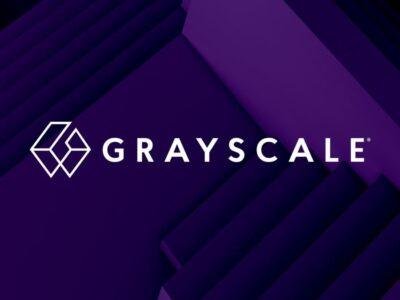Key Points
- OpenAI signs a $300 billion cloud computing deal with Oracle
- Five-year agreement kicks off in 2027 under Project Stargate
- Oracle’s cloud revenue surges 77% as AI demand explodes
- OpenAI’s data center and chip strategy coming into focus
OpenAI has signed a monumental $300 billion agreement with Oracle, marking one of the most expensive and significant cloud infrastructure deals in history.
First reported by The Wall Street Journal, the OpenAI Oracle Cloud Deal is part of Project Stargate, a multi-party initiative involving SoftBank, Oracle, and OpenAI, supported by former U.S. President Donald Trump.
The five-year agreement begins in 2027 and is designed to provide OpenAI with massive computing resources as it continues to develop increasingly complex AI models.
$ORCL just bagged a $300B deal with OpenAI. That’s not a contract, that’s an AI arms race supply chain. Biggest win for Oracle since databases ruled the earth pic.twitter.com/kIK46Kcguv
— Ben Pouladian (@benitoz) September 10, 2025
This isn’t just another tech contract, this is a strategic leap to fuel the growing demands of generative AI, advanced language models, and custom-built AI chips.
In July, OpenAI and Oracle had already unveiled plans to build data centers capable of generating 4.5 gigawatts of power, a staggering amount.
At the time, financial details were vague. Now, with this $300 billion commitment, the picture is clear: OpenAI is investing heavily in becoming a self-reliant AI powerhouse.
This deal also comes as OpenAI continues expanding its in-house talent, recently launching an OpenAI job platform to attract top-tier engineers and researchers to scale AI development efforts.
The OpenAI Oracle Cloud Deal underscores the company’s intent to take control of its infrastructure, similar to how major tech players like Google and Amazon have done.
💥BREAKING
OPENAI HAS INKED A MASSIVE $300 BILLION DEAL WITH ORACLE TO SECURE COMPUTING POWER FOR THE NEXT FIVE YEARS, PER WSJ.
THIS IS ONE OF THE LARGEST CLOUD INFRASTRUCTURE DEALS EVER. AI BOOM IS JUST GETTING STARTED. ⚡️ pic.twitter.com/OnKjtoSM0v
— DustyBC Crypto (@TheDustyBC) September 10, 2025
It also aligns with reports that OpenAI is spending another $10 billion with Broadcom to design its own AI chips, reducing dependency on third-party providers like NVIDIA.
In total, OpenAI is committing hundreds of billions of dollars to its long-term AI roadmap, and the Oracle partnership plays a central role in that vision.
Oracle Rides the AI Wave to Cloud Dominance
Oracle’s strategic bet on AI infrastructure is clearly paying off. CEO Safra Catz hinted at major cloud wins during the company’s Q1 earnings report, noting that three unnamed firms had signed four multi-billion-dollar contracts.
While she didn’t name names, it’s now confirmed that the OpenAI Oracle Cloud Deal is one of them.
Thanks to this deal and others, Oracle’s cloud infrastructure revenue jumped 77% year-over-year, a huge leap for a company that has traditionally been seen as a legacy tech player.
JUST IN: OpenAI has signed $300B, five-year compute deal with Oracle starting in 2027, requiring about 4.5 GW of capacity.$ONE of the biggest cloud contracts ever.
Cc: @ftr_investors @harmonyprotocol building towards $7T Robotics x AI is huge!
Cc: @stse @abundance_li 🙌 pic.twitter.com/6gKwiw8WmN
— kratos.crazy.one 💙 (@kratos_harmony) September 11, 2025
Even more eye-catching: Oracle reported adding $317 billion in future contract revenue just in Q1, an eye-popping figure that helped push Chairman Larry Ellison to the top of the world’s richest people list.
This transformation isn’t happening by chance. Oracle has been rapidly building out its cloud infrastructure to cater specifically to AI companies.
Unlike general-purpose cloud services, Oracle offers custom, high-performance setups optimized for AI workloads, which are in skyrocketing demand.
The OpenAI Oracle Cloud Deal validates Oracle’s strategy and signals a new era in the cloud wars. While Amazon Web Services, Google Cloud, and Microsoft Azure still dominate the broader market, Oracle is carving out a niche in the AI-first infrastructure space, and doing it with billion-dollar clients.
Meanwhile, other major AI firms like Anthropic are making headlines for different reasons, such as the $1.5 billion legal settlement tied to historic disputes. In contrast, OpenAI is doubling down on scaling infrastructure and compute.
OpenAI just locked in a $300 B cloud deal with Oracle…
one of the biggest in history. A massive bet on AI’s hunger for compute.
#OpenAI #Oracle #AI #CloudComputing pic.twitter.com/7qV8PeLHua
— Abu (@abuchanlife) September 10, 2025
How the Deal Fits Into OpenAI’s Long-Term Strategy
For OpenAI, the $300 billion cloud commitment is more than just a technology investment, it’s a foundational move to support the future of artificial general intelligence (AGI) and beyond.
The OpenAI Oracle Cloud Deal enables the company to lock in a reliable, scalable infrastructure partner that can meet the power-hungry needs of its models.
By starting in 2027, the deal is strategically timed. OpenAI will likely spend the next couple of years refining its chip development with Broadcom, which is rumored to be a $10 billion initiative.
These chips could be optimized to run on Oracle’s customized cloud servers, creating a seamless ecosystem from silicon to server.
The deal also positions OpenAI to control more of its technological stack, a trend that’s becoming increasingly common among major AI players.
Google has TPU, Amazon has its Trainium and Inferentia chips—and now, with the OpenAI Oracle Cloud Deal and Broadcom chip partnership, OpenAI is entering the same league.
This approach reflects OpenAI’s recent internal focus on transparency and model reliability, as seen in their creation of a dedicated OpenAI model behavior team to monitor how its AI systems behave in the real world.
The company is also keeping an eye on the broader digital ecosystem. Just last month, OpenAI CEO Sam Altman addressed the growing influence of AI-powered bots on social media, indicating the need for stronger content integrity checks as AI becomes more deeply embedded into the web.
With expected revenues of $12.7 billion this year and growing demand for AI services globally, the company needs a backbone that can handle next-gen model training and deployment at scale. The OpenAI Oracle Cloud Deal gives it that backbone.
And with Google also moving aggressively into the space, including its recent AI model expansion efforts, the race to dominate AI infrastructure is heating up fast.







